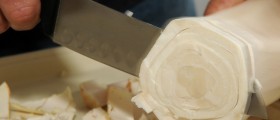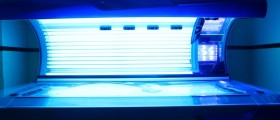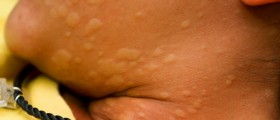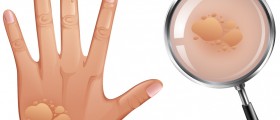
Sun poisoning is a term used to describe a group of reactions after exposure to sun. Sunburns, sun poisoning or sun allergy are all manifestations of a hypersensitive reaction to the sun, also known as photodermatitis.
Photodermatitis can result from exposure or overexposure to UVA and UVB radiation from the sun or in combination with other factors, such as chemicals, cosmetic products, certain foods and similar.
Frequent exposure to the sun can lead to problems such as skin rash, redness, dryness, wrinkles, freckles and itching, and frequent sunburns increase the risk of skin cancer.
Symptoms of sun poisoning
The symptoms of sun poisoning are more severe than those of normal sunburns. The symptoms in these two types of reaction to the sun are the same, but with different identity.
The full extent of sun poisoning is known in 12 to 24 hours after overexposure to the sun. The symptoms may include fatigue, nausea, vomiting, dizziness, headache, fever, redness of the skin, rash, rapid pulse and breathing rate, blisters and darkening of the skin.
Risk factors and prevention of sun poisoning
The most important risk factor for sun poisoning is, naturally, exposure to the sun, especially during peak hours, when the radiation is more intense. Certain medications and chemicals are known for increasing the severity of the reaction to the sun, and they should be avoided.
Some people have allergic reactions to the sun even if the exposure is not excessive. This condition is called polymorphous light eruption and it usually affects Nordic peoples.
Sun poisoning can be prevented by wearing protective clothes, hats and sunglasses and by using a sunblock or sunscreen with high SPF.
Treatment for sun poisoning
There is no specific treatment for sun poisoning as of yet. However, there are ways to relieve the symptoms.
The first thing to do after the symptoms set in is to take a long cool shower or cold bath. Cold compresses also work great.
There are remedies that can be applied on the skin to soothe it and to relieve itching, burning or pain. Oatmeal is very beneficial for this purpose, and so is plain yogurt, aloe vera gel or cucumbers.
In addition, it is vital to stay hydrated by drinking plenty of water.
It is best to stay in a cool environment until the symptoms subside. Over-the-counter medications like Hydrocortisone or antihistamines can be taken to relieve the rash. Pain medication is recommended in case the sun poisoning causes pain. Prednisone or similar steroids can be used for very severe cases of sun poisoning.















-Causes,-Symptoms,-Diagnosis-And-Treatment_f_280x120.jpg)

Your thoughts on this
Loading...